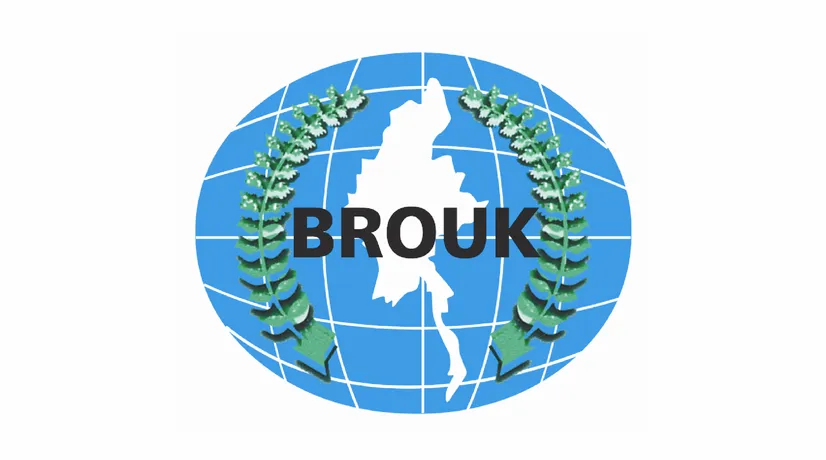7th Anniversary Of The Rohingya Genocide Remembrance Day
25 August 2024

Today marks seven years since the Myanmar military launched the 2017 brutal campaign of killings, mass rape, and arson against the Rohingya in northern Rakhine State, resulting in the deaths of thousands and forcing over 730,000 to seek refuge in Bangladesh.
These horrific acts of violence and persecution that began in August 2017 are not a distant memory but an ongoing tragedy. The Rohingya continue to endure relentless brutality, their plight a stark reminder of our collective failure to uphold international law.
Within Myanmar, approximately 600,000 Rohingya remain confined in internment camps in Rakhine State, or living under discriminatory laws and policies that constitute ongoing crimes against humanity and genocide. The military junta persists in denying them basic rights, further restricting their freedom of movement, access to livelihoods, and educational opportunities, thereby perpetuating their suffering and oppression. This is a deliberate and calculated part of the genocide, and a violation of the provisional measures ordered by the International Court of Justice.
The conflict between the Myanmar military and the Arakan Army (AA) has exacerbated the crisis, with both sides violating international law. The military’s aerial bombardments have turned civilian areas into war zones, indiscriminately killing Rohingya and ethnic Rakhine civilians alike, and reducing homes, marketplaces, and vital infrastructure to rubble. The military’s blockade of humanitarian aid adds a deliberate layer of cruelty, deepening the suffering and despair of the Rohingya. At the same time the Arakan Army is launching indiscriminate attacks on the Myanmar military, which are killing Rohingya civilians.
On May 17, 2024, the Arakan Army’s arson attack in Buthidaung resulted in large-scale fires that displaced thousands of Rohingya and devastated their communities. Similarly, on August 5, 2024, a drone and artillery attack on the banks of the Naf River, which eyewitnesses say was conducted by the Arakan Army, led to the deaths of numerous Rohingya civilians. Those fleeing this violence continue to seek refuge in overcrowded and inadequately supported camps across the border in Bangladesh.
In Bangladesh, nearly one million Rohingya refugees face increasingly dire conditions. The lack of access to essential services such as healthcare, education, and livelihood opportunities continues to compound their hardships. While we acknowledge the efforts of Bangladesh’s interim government, led by Muhammad Yunus, in supporting the Rohingya, there is an urgent need for more substantial and effective actions to address these severe humanitarian challenges and ensure the protection and well-being of Rohingya refugees, including lifting restrictions in the refugee camps. This includes genuine access to education, proper housing and sanitation, and access to work.
The global response to the Rohingya crisis has been woefully inadequate, allowing the Myanmar military’s reign of terror to continue unchecked. The ongoing impunity perpetuates a cycle of violence and suffering that must be urgently addressed. The time for half-measures and empty promises is over. We need decisive, coordinated international action.
The pursuit of justice for the Rohingya people has taken various forms, with significant efforts at the International Criminal Court (ICC) and the International Court of Justice (ICJ). In 2019, the ICC authorized an investigation into crimes by Myanmar authorities against the Rohingya, focusing on offenses partially committed on the territory of Bangladesh or other ICC member states. However, the ICC’s jurisdictional limits prevent it from prosecuting crimes completed entirely within Myanmar, leaving many atrocities unaddressed. Additionally, the ICC’s investigation excludes crimes committed after the February 2021 coup. Meanwhile, The Gambia’s 2019 case against Myanmar at the ICJ addresses state responsibility for genocide but does not hold individuals criminally accountable, and no action has been taken into the violation of provisional measures ordered by the Court.
In 2019, Burmese Rohingya Organisation UK, along with six Rohingya women survivors, filed a petition in Argentina under the principle of Universal Jurisdiction. This case represents a crucial step in addressing the failure of the UN Security Council and international justice mechanisms to hold members of the Burmese military who are violating international law personally accountable for their crimes. This legal action offers a beacon of hope for the Rohingya and everyone in Burma, providing a path toward the justice that has long been denied.
“This anniversary represents a complete failure by the United Nations and every UN member state, and international justice mechanisms, to uphold international law and prevent genocide,” said Tun Khin, President of Burmese Rohingya Organisation UK. “On this anniversary we remember not just the lives lost and destroyed, but also the failure to act on warnings to prevent genocide, the failure to take action against the perpetrators once genocide happened, and the failure to provide even the most basic humanitarian support to the victims of genocide in Bangladesh and in Burma. Not one government can claim it is doing everything it can to address this crisis. This is not just the anniversary of a genocidal military offensive against the Rohingya. It is the anniversary of what happens when world leaders put political and economic agendas ahead of international law, and through their inaction give the green light to human rights abusers that they can act with impunity.”
Announcements
21 May 2025
Open letter: Malaysia must lead ASEAN with principle, not hypocrisy, to address the Myanmar crisis

Progressive Voice is a participatory rights-based policy research and advocacy organization rooted in civil society, that maintains strong networks and relationships with grassroots organizations and community-based organizations throughout Myanmar. It acts as a bridge to the international community and international policymakers by amplifying voices from the ground, and advocating for a rights-based policy narrative.